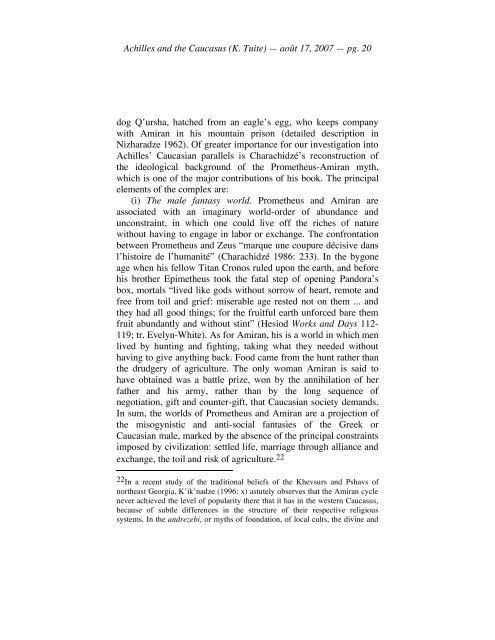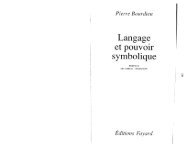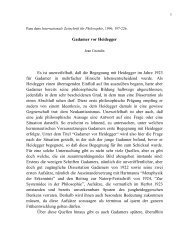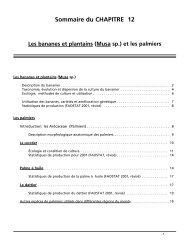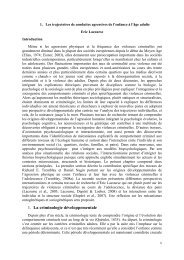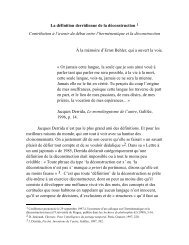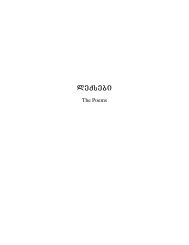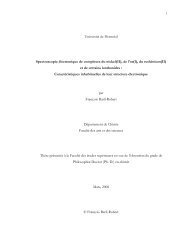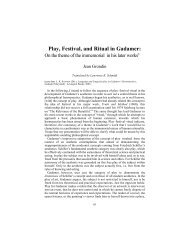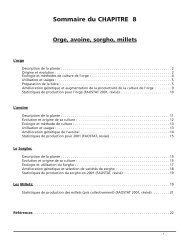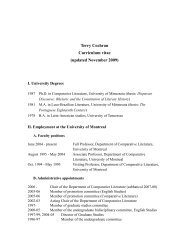Achilles and the Caucasus - Université de Montréal
Achilles and the Caucasus - Université de Montréal
Achilles and the Caucasus - Université de Montréal
You also want an ePaper? Increase the reach of your titles
YUMPU automatically turns print PDFs into web optimized ePapers that Google loves.
<strong>Achilles</strong> <strong>and</strong> <strong>the</strong> <strong>Caucasus</strong> (K. Tuite) — août 17, 2007 — pg. 20<br />
dog Q’ursha, hatched from an eagle’s egg, who keeps company<br />
with Amiran in his mountain prison (<strong>de</strong>tailed <strong>de</strong>scription in<br />
Nizharadze 1962). Of greater importance for our investigation into<br />
<strong>Achilles</strong>’ Caucasian parallels is Charachidzé’s reconstruction of<br />
<strong>the</strong> i<strong>de</strong>ological background of <strong>the</strong> Prome<strong>the</strong>us-Amiran myth,<br />
which is one of <strong>the</strong> major contributions of his book. The principal<br />
elements of <strong>the</strong> complex are:<br />
(i) The male fantasy world. Prome<strong>the</strong>us <strong>and</strong> Amiran are<br />
associated with an imaginary world-or<strong>de</strong>r of abundance <strong>and</strong><br />
unconstraint, in which one could live off <strong>the</strong> riches of nature<br />
without having to engage in labor or exchange. The confrontation<br />
between Prome<strong>the</strong>us <strong>and</strong> Zeus “marque une coupure décisive dans<br />
l’histoire <strong>de</strong> l’humanité” (Charachidzé 1986: 233). In <strong>the</strong> bygone<br />
age when his fellow Titan Cronos ruled upon <strong>the</strong> earth, <strong>and</strong> before<br />
his bro<strong>the</strong>r Epime<strong>the</strong>us took <strong>the</strong> fatal step of opening P<strong>and</strong>ora’s<br />
box, mortals “lived like gods without sorrow of heart, remote <strong>and</strong><br />
free from toil <strong>and</strong> grief: miserable age rested not on <strong>the</strong>m ... <strong>and</strong><br />
<strong>the</strong>y had all good things; for <strong>the</strong> fruitful earth unforced bare <strong>the</strong>m<br />
fruit abundantly <strong>and</strong> without stint” (Hesiod Works <strong>and</strong> Days 112-<br />
119; tr. Evelyn-White). As for Amiran, his is a world in which men<br />
lived by hunting <strong>and</strong> fighting, taking what <strong>the</strong>y nee<strong>de</strong>d without<br />
having to give anything back. Food came from <strong>the</strong> hunt ra<strong>the</strong>r than<br />
<strong>the</strong> drudgery of agriculture. The only woman Amiran is said to<br />
have obtained was a battle prize, won by <strong>the</strong> annihilation of her<br />
fa<strong>the</strong>r <strong>and</strong> his army, ra<strong>the</strong>r than by <strong>the</strong> long sequence of<br />
negotiation, gift <strong>and</strong> counter-gift, that Caucasian society <strong>de</strong>m<strong>and</strong>s.<br />
In sum, <strong>the</strong> worlds of Prome<strong>the</strong>us <strong>and</strong> Amiran are a projection of<br />
<strong>the</strong> misogynistic <strong>and</strong> anti-social fantasies of <strong>the</strong> Greek or<br />
Caucasian male, marked by <strong>the</strong> absence of <strong>the</strong> principal constraints<br />
imposed by civilization: settled life, marriage through alliance <strong>and</strong><br />
exchange, <strong>the</strong> toil <strong>and</strong> risk of agriculture. 22<br />
22 In a recent study of <strong>the</strong> traditional beliefs of <strong>the</strong> Khevsurs <strong>and</strong> Pshavs of<br />
nor<strong>the</strong>ast Georgia, K’ik’nadze (1996: x) astutely observes that <strong>the</strong> Amiran cycle<br />
never achieved <strong>the</strong> level of popularity <strong>the</strong>re that it has in <strong>the</strong> western <strong>Caucasus</strong>,<br />
because of subtle differences in <strong>the</strong> structure of <strong>the</strong>ir respective religious<br />
systems. In <strong>the</strong> <strong>and</strong>rezebi, or myths of foundation, of local cults, <strong>the</strong> divine <strong>and</strong>


